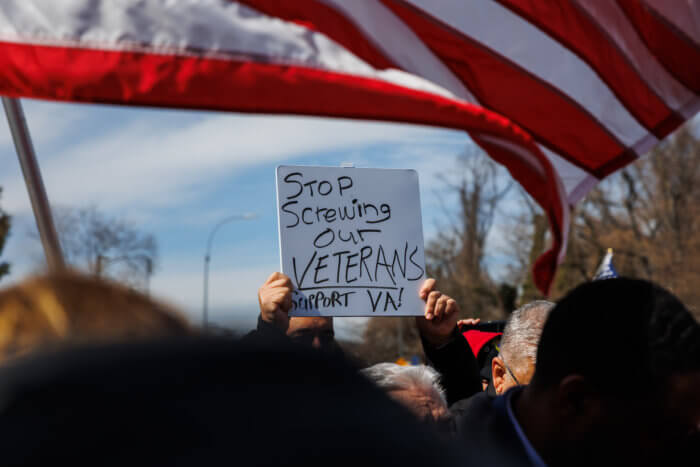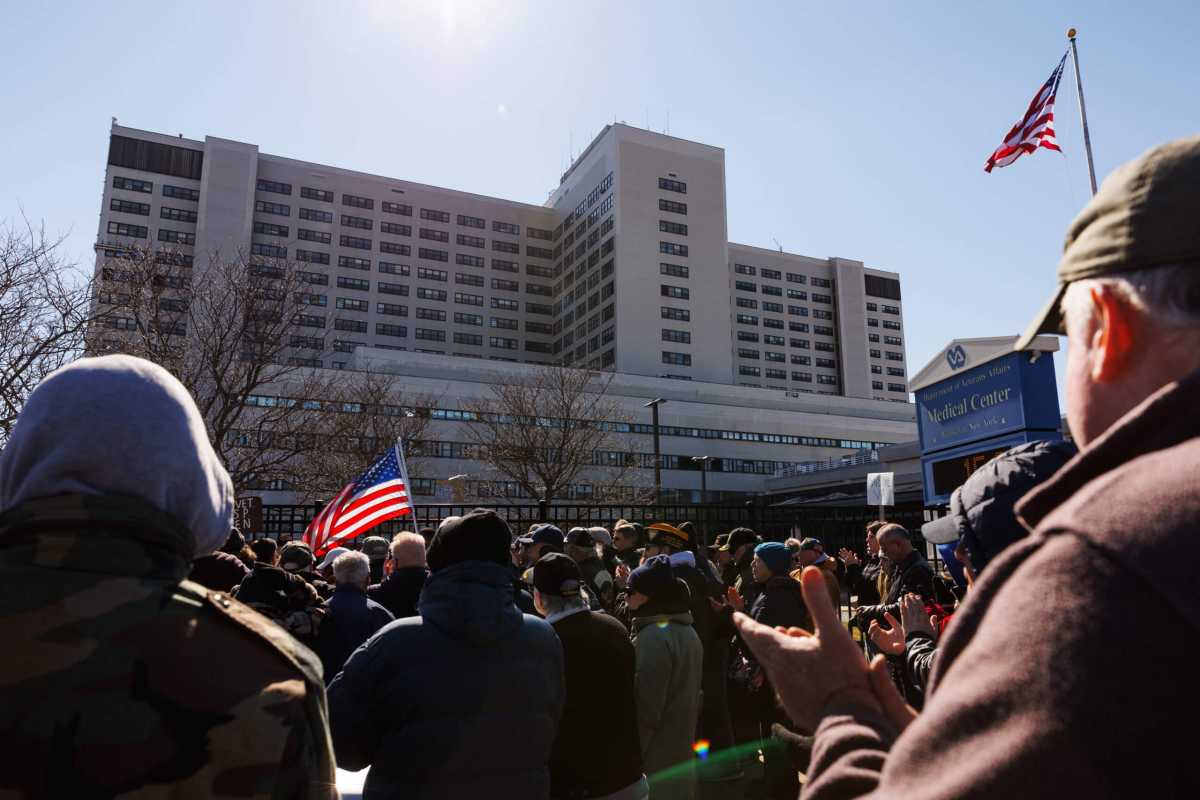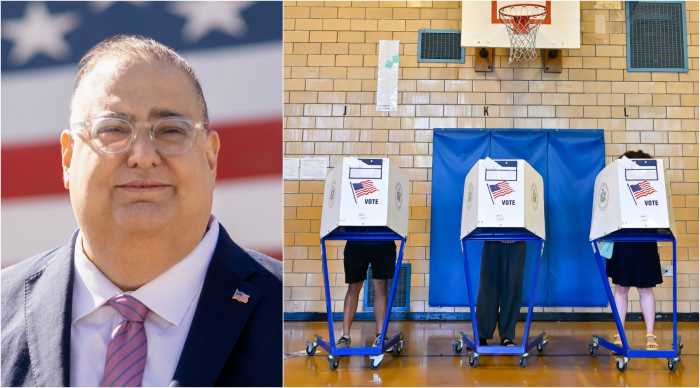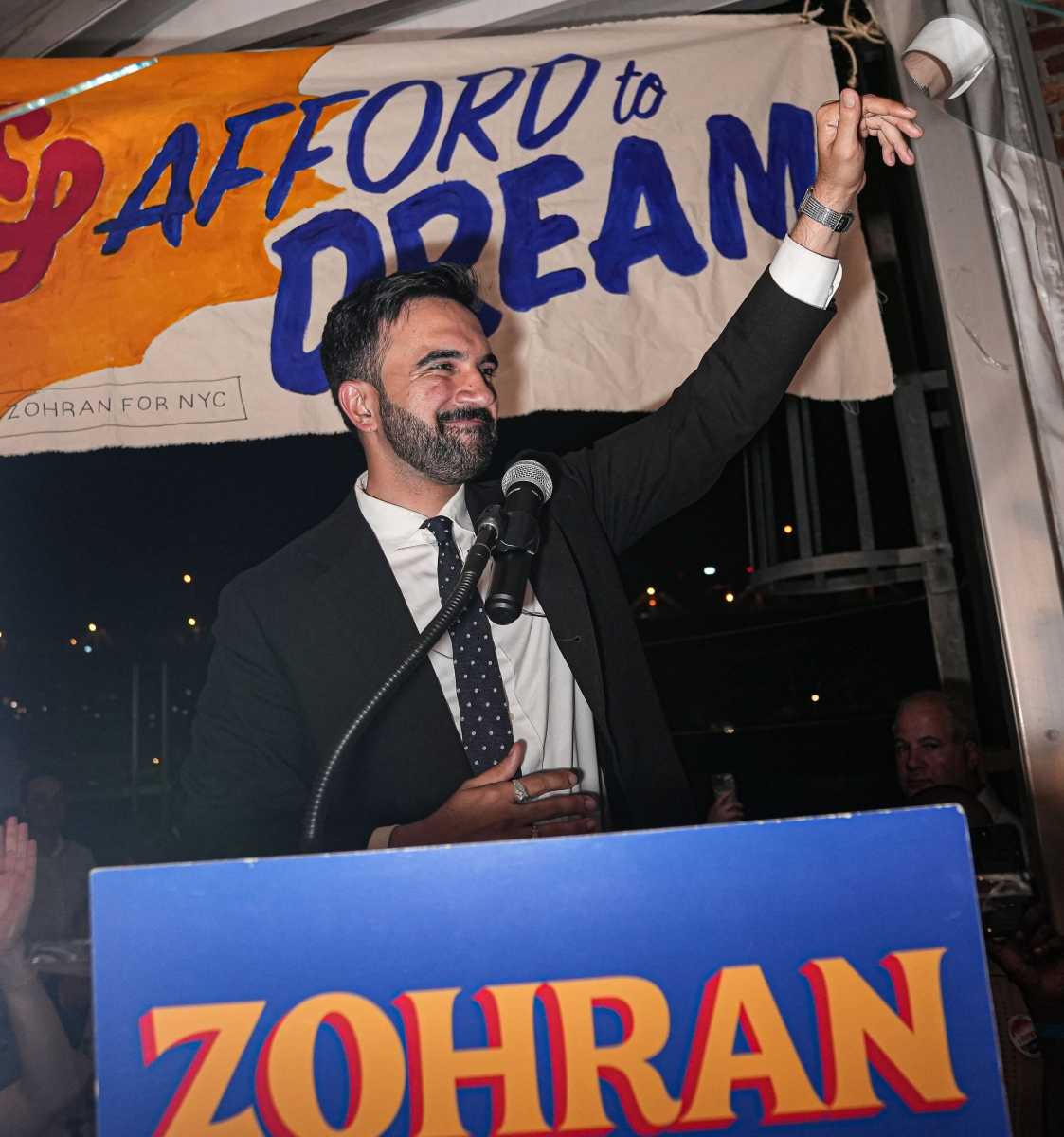The Brooklyn Veterans Affairs Medical Center has been thrown a lifeline, Senate Majority Leader Chuck Schumer announced Tuesday, after the Senate put a stop to feds’ plans to close both the Brooklyn and Manhattan VA hospitals and consolidate their services into other facilities.
Earlier this year, the federal Department of Veterans Affairs made clear in a report its plans to shutter both hospitals, and in March 2022, the department’s Asset and Infrastructure Review Commission — a group formed specifically to modernize the VA health care system — formulated a closure plan as part of a mandated review process.
But pushback from Schumer and fellow members of the Senate Veterans Affairs Committee came to a head on Monday, stopping the proposed realignment in its tracks.
“After months of fighting, I am pleased to announce that the Manhattan and Brooklyn VA Medical Centers are staying open and right where they are,” Schumer said in a statement. “When I stood with our local vets, I promised them I would not let this plan, to rip away local treatment without consulting local leaders and no interim care plan, become a reality. I am proud to say a promise made is now a promise kept.”
The commission’s report, released on March 7, noted that the veteran population within the New York City market has been slowly declining over time, with VA health care enrollment in Kings County projected to decline by 20 percent from 20,484 in Fiscal Year 2019, to 16,043 in Fiscal Year 2029. Overall, the scheme intended to shift VA resources away from New York City and the northeast towards areas like the Sun Belt, where many veterans have relocated to in recent decades, seeking a warmer climate.
It also noted that the Brooklyn VA is located in the southwestern tip of the borough, within the Fort Hamilton military base and relatively difficult to reach, especially by mass transit, while most enrolled veterans live in Central or Eastern Brooklyn. It describes the Brooklyn VA, built in 1950, as an “oversized, aged facility” facing “reduced demand.” Annual operating costs total over $16 million, while the facility itself has nearly $500 million in outstanding capital needs, according to feds.
The plan also called for establishing a partnership with local Brooklyn hospitals or hospital networks to provide the health care currently proffered at Fort Hamilton, moving some VA programs to other facilities in the area like St. Albans in Queens, and eventually closing the facility.
Senate Veterans Affairs Committee Chairman Jon Tester on June 27 testified that those plans were “not reflective of the goal” of the law that created the commission and would “put veterans in both rural and urban areas at a disadvantage,” Military.com reported.
Schumer also wrote to the Secretary of Veterans Affairs Denis McDonough highlighting specific concerns and urging the VA to reconsider its plan.
“We must invest further in bolstering our veteran healthcare facilities, not strip them away, and the previous plan missed the mark in ensuring the needs of our local vets came first,” Schumer said. “Our veterans fought for us, and that’s why I will always fight for them to ensure our veterans in New York City and across New York receive the top-notch high-quality local care that they earned and deserve.”

The news comes as a win to countless locals who rallied to save the VA hospitals.
“It’s completely unacceptable that the Biden Administration proposed closing veteran hospitals across the country including ones right here in New York City,” Rep. Nicole Malliotakis said in a statement.
Shortly after the VA’s report was released, the city’s lone Republican congressmember planned a rally outside of the Brooklyn VA, straddled on the border of Bay Ridge and Dyker Heights. There, more than 100 veterans and their families vocally opposed the planned closures and testified to the medical center’s importance.
Malliotakis at the rally called on the state legislature to ensure veterans’ medical protection.
“I’ve been working diligently with House and Senate lawmakers on both sides of the aisle to stop these proposed closures and protect the services so many veterans in our community rely on,” she said. “The Senate’s efforts to block the Asset and Infrastructure Review Commission’s recommendations is a vital first step to stop these closures, however, if the President is truly serious about expanding health care for our nation’s veterans, he should immediately announce that this proposal is dead on arrival.”
Councilmember Justin Brannan, who also opposed the shutdown, celebrated the good news on social media, saying that he hopes government leaders will continue advocating for veterans’ medical care.
“Our government has an obligation to provide all veterans with the physical and mental health care and benefits they were not only promised but deserve. We owe that to them,” Brannan said in a statement. “Closing these hospitals was just unconscionable and we needed to use every lever of power we had to stop these closures from happening.”
The VA runs a nationalized health care system catering to the nation’s veterans, who suffer a unique range of health concerns, especially mental illness, upon returning home from war and thereafter.
Local veterans contended at Malliotakis’ March rally that, despite feds’ claims, the Brooklyn facility remains a critical point of access for necessary care for veterans and their loved ones.
“Seven years ago this VA saved my life. There’s no question about it. I would not be here without this VA,” said Mickey Wedlock, a Marine Corps vet who lives in Bay Ridge, who said his family has been utilizing the Brooklyn VA’s services since it opened. “This place is busy, they’re all busy. We can’t just close places and try to fill it in in other places. It doesn’t work out like that.”
The Department of Veterans Affairs did not respond to a request for comment.
Additional reporting by Ben Brachfeld and Paul Frangipane
























